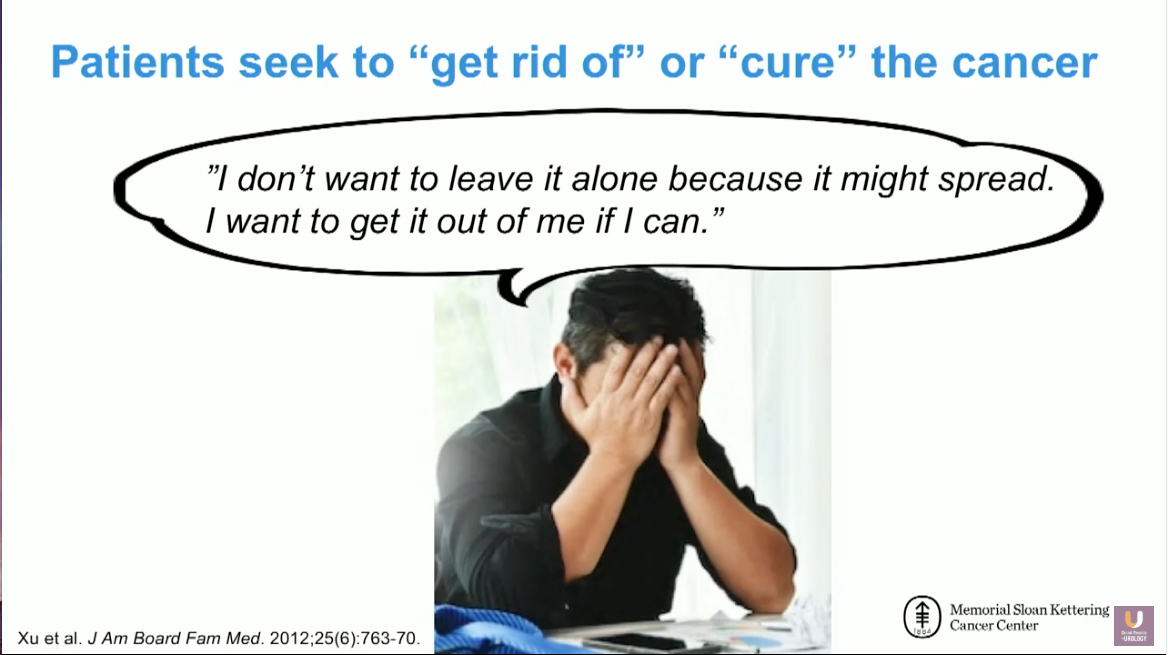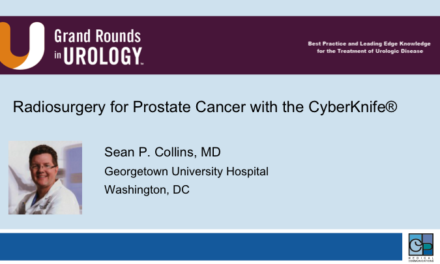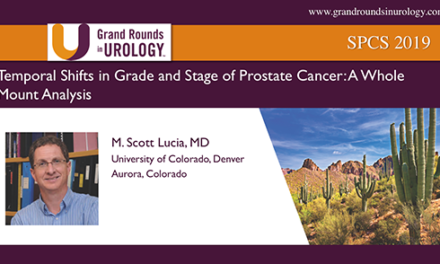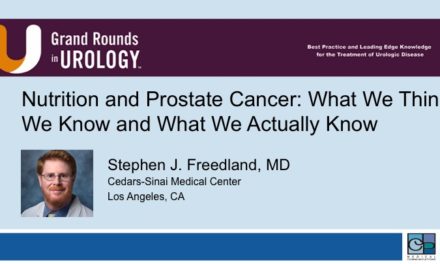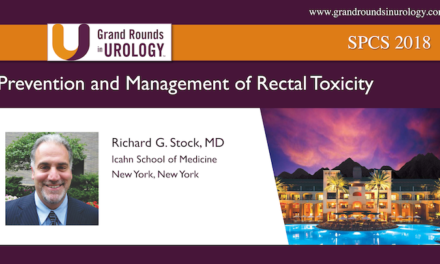Sigrid V. Carlsson, MD, PhD, MPH, presented “Prostate Cancer Active Surveillance in 2019” during the 29th Annual International Prostate Cancer Update on January 26, 2019 in Beaver Creek, Colorado.
How to cite: Crawford, E. David “New Applications and Clinical Possibilities in Prostate Cancer with Micro-Ultrasound” January 26, 2019. Accessed Jan 2025. https://dev.grandroundsinurology.com/prostate-cancer-active-surveillance-in-2019
Prostate Cancer Active Surveillance in 2019 – Summary
Sigrid V. Carlsson, MD, PhD, MPH, reviews recent guidelines regarding patient selection and protocols for prostate cancer active surveillance. She provides methods for counseling patients who would benefit from active surveillance, but experience anxiety from the prospect of foregoing aggressive therapy.
Abstract:
Only a small proportion of men with prostate cancer die from the disease. Treatment with radical prostatectomy leads to worse long-term morbidity compared to active surveillance. Many trials, such as the PIVOT trial, have confirmed the safety of active surveillance in patients with low-risk prostate cancer. Even so, many patients with low-risk disease choose treatment over active surveillance. Clinicians must make informed decisions regarding which patients should undergo active surveillance and which should proceed to therapy.
This presentation provides a framework for decision-making between active surveillance and active treatment, especially in patients with intermediate-risk prostate cancer, and when to offer active treatment to those already on active surveillance. The conversation will also review recent guidelines on selecting the optimal candidates and protocols for active surveillance.
Patient anxiety is a significant issue to address in patients both on, or choosing to go on, active surveillance. A common sentiment among patients with recently diagnosed localized prostate cancer is the desire to “get rid of” or “cure” the disease with aggressive therapy. Data from Memorial Sloan Kettering Cancer Center (MSKCC) demonstrated that patients on active surveillance commonly experience cancer-specific anxiety initially, then report low levels of anxiety over time as they adjust to their program.
This presentation will discuss methods for lessening this anxiety in patients. These methods include changing the nomenclature of the prostate cancer grade groups to destigmatize low-risk disease, a systematic approach for counseling these patients from MSKCC.
About the International Prostate Cancer Update
The International Prostate Cancer Update (IPCU) is an annual, multi-day CME conference focused on prostate cancer treatment updates. The conference’s faculty consists of international experts, and the event caters to urologists, medical oncologists, radiation oncologists, and other healthcare professionals. Topics encompass prostate cancer management from diagnosis to treating advanced and metastatic disease. Dr. Carlsson presented this lecture during the 29th IPCU in 2019. Please visit this page in order to learn more about future IPCU meetings.
ABOUT THE AUTHOR
Sigrid Carlsson, MD, PhD, MPH, is an Assistant Attending Epidemiologist at Memorial Sloan Kettering Cancer Center (MSKCC) with 15 years of prostate cancer research experience and over 100 publications. Her PhD thesis stemmed from the world’s largest study of prostate cancer screening, the European Randomized Study of Screening for Prostate Cancer (ERSPC), which investigated how quality of life was affected by screening and treatment. Before pursuing postdoctoral studies in urologic oncology at MSKCC, Dr. Carlsson was a physician in Sweden. She obtained an MPH degree from Harvard T.H. Chan School of Public Health.
Currently, Dr. Carlsson’s research focuses on developing risk-stratified approaches to screening, diagnosis, treatment, and follow-up of prostate cancer patients. She is also the PI of a study funded by the Patty Brisben Foundation to improve the method of asking questions about women’s sexual health. She is a co-investigator on a multi-center study funded by Movember (PI: Andrew J. Vickers, PhD) that evaluates the impact of survivorship care plans and navigation tools on patients with prostate cancer after radiotherapy. She is a co-investigator on two NIH-funded research projects, one of which investigates biomarkers and risk stratification in localized prostate cancer (PI: Hans Lilja, MD, PhD). The second project is focused on developing models to improve prostate cancer outcomes across diverse populations (PI: Ruth Etzioni, PhD).

